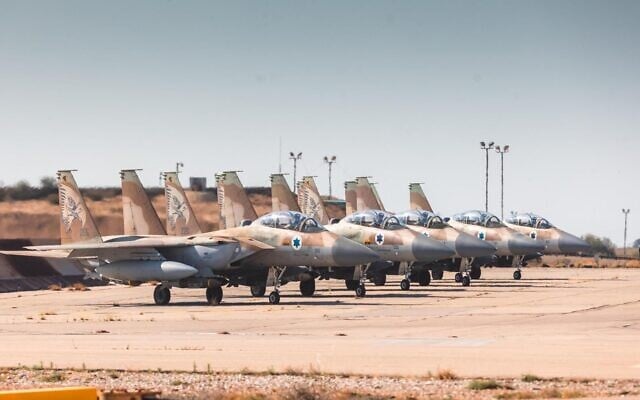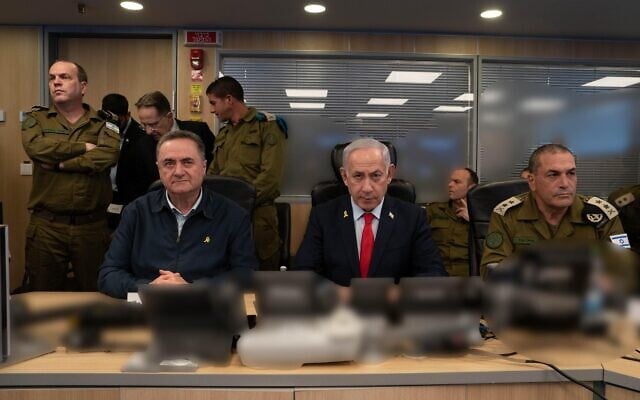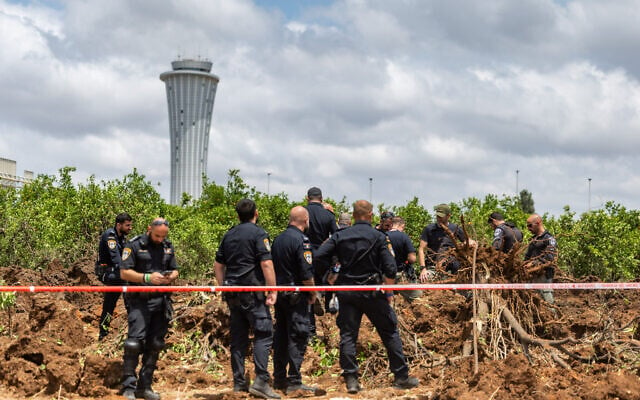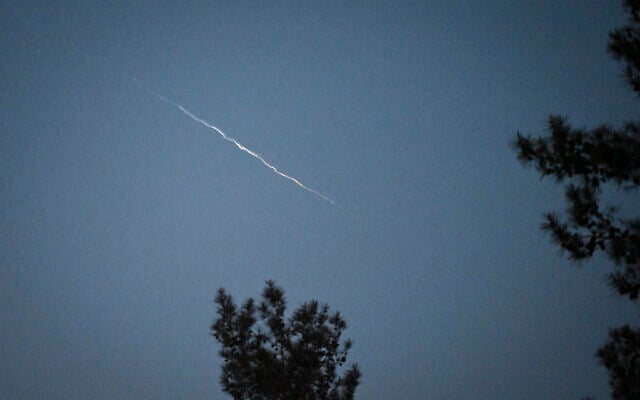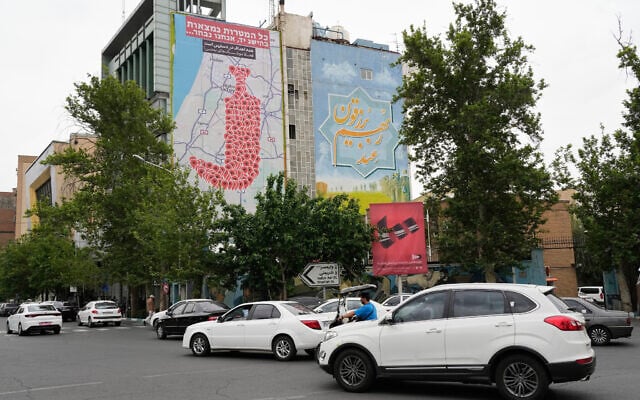


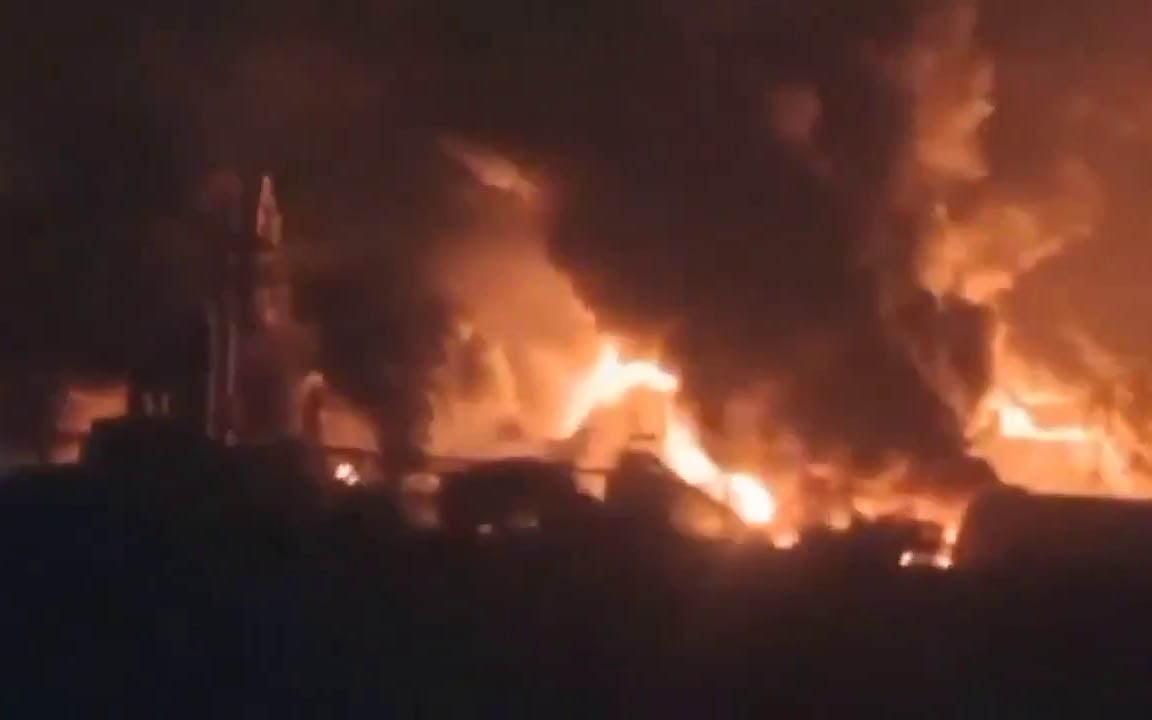
The Israeli Air Force on Monday evening carried out airstrikes in the Houthi-held port city of Hodeidah in Yemen in response to the Iran-backed terror group’s ballistic missile attack on Ben Gurion Airport that left several injured a day earlier.
According to the military, the strikes carried out by some 20 IAF fighter jets targeted Houthi infrastructure along the coast of Yemen, including at the Hodeidah port and a concrete factory near the nearby city of Bajil, some 2,000 kilometers from Israel.
The jets dropped 50 munitions on the Houthi targets, the military said, publishing images showing the jets preparing for takeoff. IAF refuelers and spy planes also participated in the operation.
The Israel Defense Forces said the Hodeidah port was used by the Houthis “for the transfer of Iranian weapons, equipment for military needs, and other terror purposes.”
The Bajil concrete factory “serves as an important economic resource for the Houthi terror regime and is used for building tunnels and military infrastructure,” the IDF said, adding that the strikes “constitute a blow to the regime’s economy and its military buildup.”
“The strike was conducted in response to the repeated attacks by the Houthi terrorist regime against the State of Israel, during which surface-to-surface missiles and UAVs were launched toward Israeli territory and its civilians,” the military said in a statement
It was the sixth Israeli strike in Yemen since the beginning of the war, and the first since January. The IDF had stopped responding to the Houthis missile and drone fire on Israel, after the US launched a major aerial campaign against the Iran-backed group several months ago.
Israeli officials said the strikes were coordinated with the US, but were not a joint operation.
Footage posted online purportedly showed a large fire at the concrete factory.
Images released by the Defense Ministry and Prime Minister’s Office showed Prime Minister Benjamin Netanyahu, Defense Minister Israel Katz, and IDF Chief of Staff Lt. Gen. Eyal Zamir overseeing Monday’s operation together with officers at the IAF’s underground headquarters at the Tel Aviv Defense Ministry headquarters.
IAF chief Maj. Gen. Tomer Bar, who was not pictured, joined the officials shortly after, as he was commanding the operation from an adjacent command post.
Monday’s strikes came after a missile fired from Yemen on Sunday landed inside the perimeter of Ben Gurion Airport near Tel Aviv for the first time, in a grove of trees alongside an access road close to the airport’s main Terminal 3, several hundred yards from the facility’s control tower.
The missile gouged a wide crater in the ground near an airport parking lot, injuring six people, none of them seriously, and prompting international airlines to suspend flights.
The Houthis claimed responsibility, saying they fired a “hypersonic ballistic missile” at Ben Gurion. The military has said that Iran, and the Houthis — which are supplied by Tehran — do not possess hypersonic missiles, and the missiles they have launched at the country are not maneuverable.
The Houthis “will work to impose a comprehensive air blockade on the Israeli enemy by repeatedly targeting airports, most notably… Ben Gurion Airport,” the terror group said in a statement. The success of such a blockade is highly unlikely, however, with Israel’s defensive systems expected to be able to tackle most incoming missiles.
Shortly before the Israeli strikes, media in Yemen reported strikes carried out by the United States near the capital, Sanaa. The Houthi-run Saba news agency said the US strikes included two on Arbaeen Street in the capital and the airport road, blaming them on “American aggression.”
Sixteen people were wounded, Saba cited the Iran-backed rebels’ Health Ministry as saying. The rebels’ Al-Masirah TV later reported another three strikes in Sanaa and seven in the northern governorate of Al-Jawf.
The Houthis — whose slogan calls for “Death to America, Death to Israel, [and] a Curse on the Jews” — began attacking Israel and maritime traffic in November 2023, a month after the October 7 Hamas massacre.
Since March 18, when the IDF resumed its offensive against Hamas in the Gaza Strip, the Houthis in Yemen have launched some 27 ballistic missiles and several drones at Israel.
The Houthis held their fire when a ceasefire was reached between Israel and Hamas in January 2025. By that point, they had fired over 40 ballistic missiles and dozens of attack drones and cruise missiles at Israel, including one that killed a civilian and wounded several others in Tel Aviv in July, prompting Israel’s first strike in Yemen.
The sirens warning of missile attacks have sent hundreds of thousands of Israelis rushing to shelters at all hours of the night and day, causing a number of injuries in the scramble during threats from the incoming missiles and also as a precaution against falling debris from intercepts, which have occasionally caused injuries, death, and damage.
Netanyahu on Sunday vowed a tough response against the Houthis, as well as their main backer, Iran, over the airport attack.
In a video published on Telegram, Netanyahu said Israel had “acted against” the Houthis in the past and “will act in the future.”
“It will not happen in one bang, but there will be many bangs,” he added, without elaborating.
On the social media platform X, Netanyahu said Israel would also respond to Iran at “a time and place of our choosing.”
Hours later, the Houthis threatened to launch more such strikes and warned airlines to cancel their flights to Israeli airports.
Iran on Monday denied supporting the attack on Ben Gurion Airport, calling it an “independent decision” by the Yemeni rebels taken in solidarity with the Palestinian people.
Reacting to Netanyahu’s threats, the Islamic Republic warned it would retaliate against any attack on its territory.
“Iran underlines (its) firm determination… to defend itself,” the Iranian foreign ministry said, warning Israel and the United States of “consequences.”
US strikes on Yemen’s Houthi rebels began under former president Joe Biden, but have intensified under his successor, Donald Trump.

